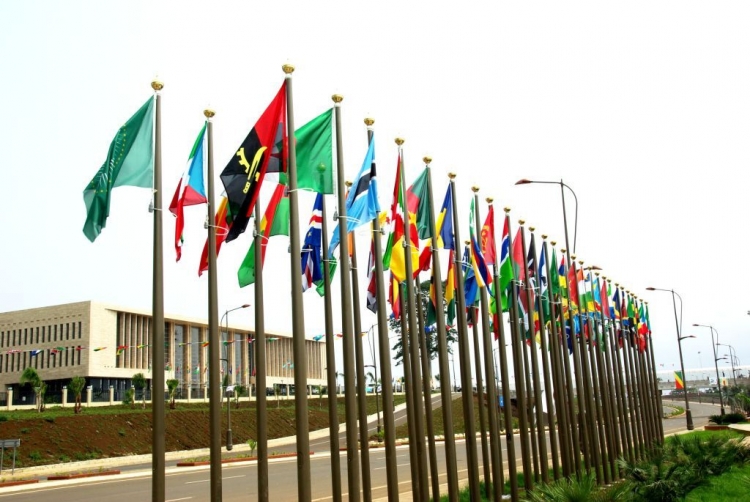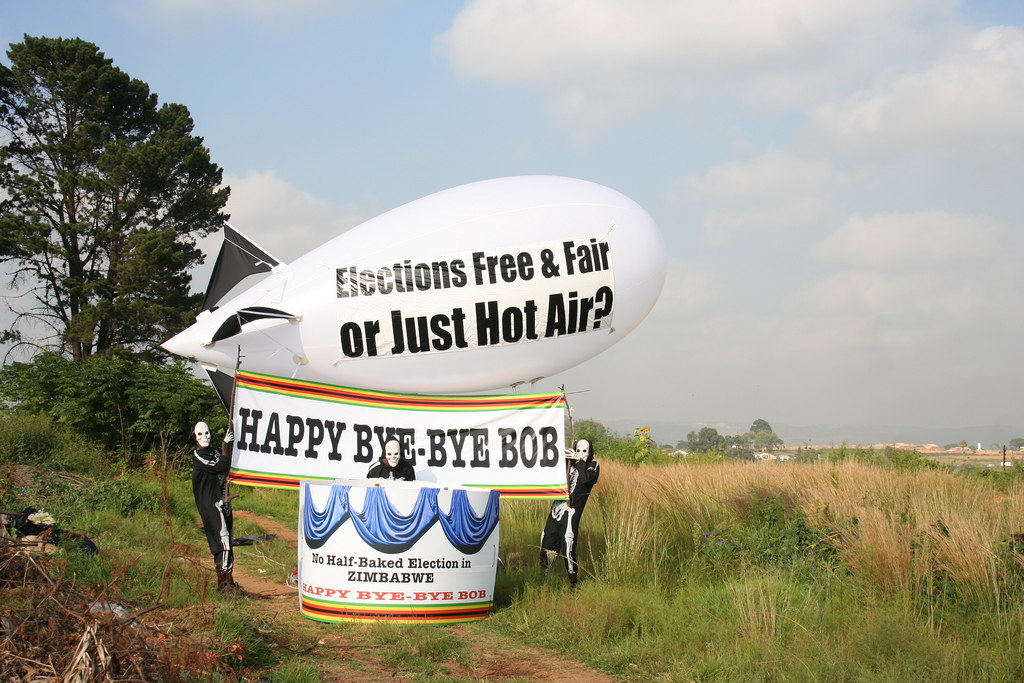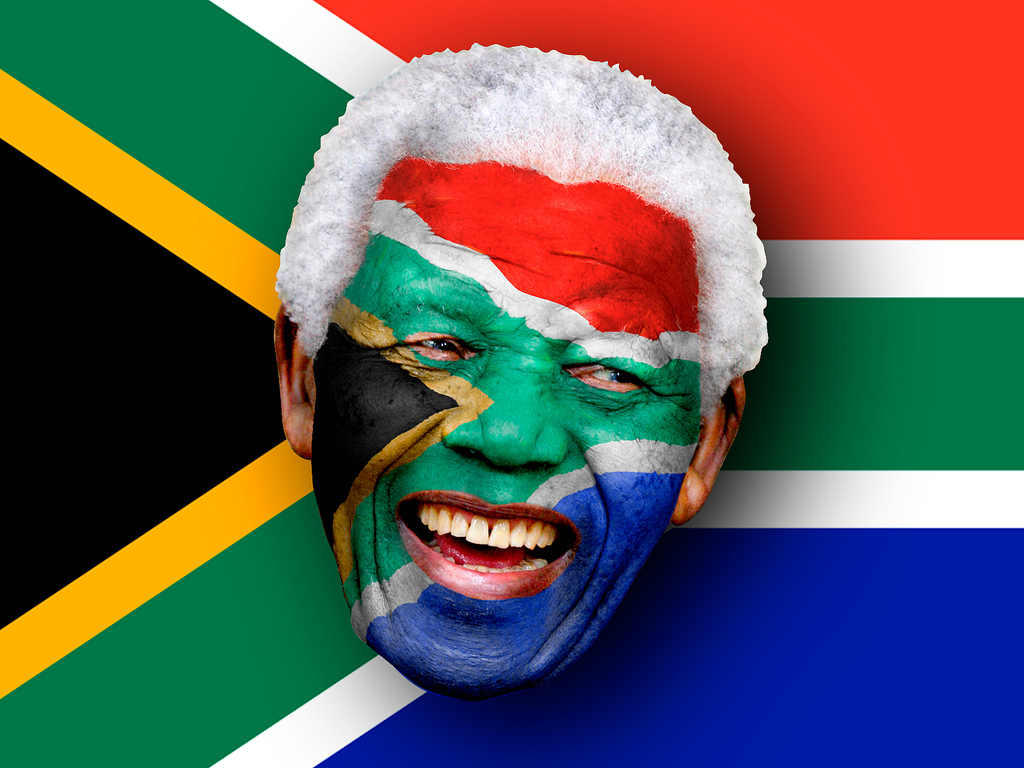African Politics 101

After the end of one's presidential term (or two terms), in America, the president leaves their office in a respectable manner. In Africa, it is more of a suggestion. One could leave his seat after four or five years, or one could extend his or her regime by another year, or thirty. Seems unbelievable? Here's a snapshot of everything you need to know about African politics.
The Telegraph published the article Egypt's Sisi wins 97 percent in an election with no real opposition on 3 April 2018, in which they not only validated suspicions of electoral fraud but also had numbers and statistics to defend their claim. "Mr. Sisi won 21.8 million votes compared with 656,534 for his opponent, Moussa Mostafa Moussa, whose tally was fewer than the 1.8 million spoiled ballots," they wrote, adding that Sisi had "suggested" earlier that the election was more of "a referendum on his presidency rather than a genuine contest."
Was this, even slightly, surprising? No, not to anyone who is familiar with African politics; the signs have been obvious since January. From seemingly random arrests of candidates to the ones pressured into resignation, the competitors of a certain candidate - Abdel Fattah al-Sisi - were "dropping like flies." Everything seemed so systematic that - of course - people suspected electoral fraud, but had no tangible proof, except for the fact that, "it's Africa."
On June 12, 1993, Nigeria was supposed to hold its most democratic election. It was the first time a southern Nigerian could get into power, as the British had traditionally handed political power to the northerners during their reign. Moshood Abiola, a southerner, gained the support of 58.3 percent of legitimate voters and Bashir Tofa, a northerner, gathered the other 41.7 percent. When the results were announced, the head of state at the time - General Ibrahim Babangida - decided to annul the votes. Nigerians took to the streets to protest, and, after a coup d'état, he was forced to resign. But, instead of making Abiola president, General Sani Abacha took over. And just like that, a new shade of post-colonial darkness dawned over Nigeria, and we still haven't reached the end of the tunnel to find the light.
And it is not just electoral fraud that is the problem. Africa has a long-standing history of post-electoral violence, tribalism, xenophobia, corruption, and more; there's a long list. But the continent is never going to move forward until Africans realize that they are more similar than they are different. In 2007, after Kenya's 2007 presidential election during which Mwai Kibaki won, violence erupted in the country, taking over 1,300 lives and internally displacing over 600,000 others. Sophie Umazi, a young Kenyan, had to negotiate her life to three men who held her at gunpoint. In 2012, while she was a student at The African Leadership Academy, she launched her 'I am Kenyan' photo project, calling everyone one from all ages, genders and nationalities to take a picture with the words "I am Kenyan" to promote peace and bring an end to ethnic violence and xenophobia. During her TEDx talk, Sophie announced that "I believe we are all human beings before we are citizens of a different country. And I believe that as citizens of the world, if one part of the world is ailing, we have to all reach out to that part, pick it up and move on forward together."
In four days, the "I am Kenyan" project received 85 pictures from over 4,000 people through 20 counties who spoke different languages. They made their pictures their social media display pictures, posted them on their profiles, their headlines, and spread the word. In eight months, the campaign had gathered over 4,021,875 pictures. In 2013, Kenya held the most democratic election in their history, with a voters turn out of 88 percent.
Original caption: Protestors check their props ahead of a birthday demo against 84-year-old President Robert Mugabe. Image Credits: Flickr/Sokwanele - Zimbabwe.
Idi Amin Dada served as the president of Uganda from 1971 to 1979. During this (relatively) short term of his dictatorship, more than 500,000 people were killed and thrown into the Nile River. Atop the title he bestowed on himself - "His Excellency, President for Life, Field Marshal Al Hadji Doctor Idi Amin Dada, VC, DSO, MC, Lord of All the Beasts of the Earth and Fishes of the Seas and Conqueror of the British Empire in Africa in General and Uganda in Particular" - only one truly outlived him: The worst dictator in African history.
Then there is Robert Mugabe, who ruled Zimbabwe from 1979 until a coup d'état - yes, we are very fond of that - forced him to resign in 2017. Or South Africa's Jacob Zuma - who was not technically a dictator - but had to resign after almost nine years due to incompetence.
Is the problem the abundance of dictators on the continent, or is it their ineptitude? Is it okay to be an authoritarian if one dictates rules that would benefit the country in the long run? Mugabe practically got Zimbabwe its independence from the colonizers and before Thomas Sankara's "et tu, brute" assassination, he was an African hero. In a tribute to him, Mohamed Keita wrote, "I was no more than a young boy in Dakar, Senegal when I heard with grief and disbelief the stunning and crushing news of the death in a coup of Sankara in 1987," adding that, "Nelson Mandela was in Jail, Patrice Lumumba was long dead, and for a kid in search of African heroes, the incorruptible and young soldier-statesman was a star, a guitar-playing rebel in fatigues who troubled the consciences of the powerful elites in his country and across the continent."
Now, allow yourself - for a second - to forget the fact that for the (almost) 42 years he ruled Libya, Colonel Muammar Gaddafi destroyed everyone who opposed him and is linked to thousands of dead bodies. He was also linked to free education, electricity and medical treatment, human rights, irrigation projects and cheap petrol. But when you read about him from Al Jazeera or other western media outlets, he is a terrorist and nothing more. Africans have for so long allowed outsiders define their people and countries to them that they have now adopted the western definitions and made them African. They said the continent is full of dictators, genocide, blood diamonds, civil wars, child soldiers and kleptocracy and Africans took their word for it.
Nelson Mandela. Image Credits: Flickr/Chaouki.
When talking about African politics, people often talk about dictatorship, corruption, electoral fraud, Mugabe, sometimes Ken Saro Wiwa - the writer and activist who was killed by the Nigerian government. But what about the good stories? How about Nelson Mandela, South Africa's first democratically-elected president and Kwame Nkrumah, the first president of Ghana? If you are so keen to tell the stories about the politicians who ruined Africa over and over again then, then you must provide a counter-argument stating all the leaders who have revolutionized the continent.
Back in May 1963, Kwame Nkrumah delivered a speech in Addis Ababa, calling different African heads of state to unite as one. He asked them to put aside their individuality and identify as an African first before they are Ghanaians, Egyptians, Moroccans or Nigerians. His call to action was for an organization that would bring everyone together as equal members of one Africa. "We have been too busy nursing our separate states to understand fully the basic need of our union, rooted in common purpose, common planning, and common endeavor," he said, asking that countries share their resources for the great good of the continent.
Almost a year later, in April 1964, during the Rivonia trial in Pretoria, Mandela made the opening statement for the defense. In his speech, he announced, "I have fought against white domination and I have fought against black domination. I have cherished the ideal of a democratic and free society in which all persons live together in harmony and with equal opportunities. It is an idea which I hope to live for and to achieve. But if need be, it is an ideal for which I am prepared to die."
But why is it that when there is corruption in the government, people can easily dismiss and forgive it because "it's Africa, what do you expect?" Why is it that when people are voting for presidents, they vote not based off of one's credibility, but whether or not they are members of the same tribe? Why is it we have replaced Mandela and Nkrumah with Biya and Mugabe?
As of late, the African Union (AU) has been working hard to teach people about politics. From the 23rd to the 25th of April, it ran workshops on 'Electoral boundaries Delimitation for Somalia' in Kenya. In a press release, Robert Gerenge from AU's Department of Political Affairs wrote that, "this training is therefore crucial in contributing to the sustainability of democratic governance, peace and political stability in Somalia." He says that it also goes hand-in-hand with one of the visions of the organization: an Africa of good governance, democracy, and respect for human rights, justice and the rule of law." The African Union has recognized that the progression of one African state is for the betterment of the continent as a whole.
This month, Botswana appointed its youngest minister, Bogolo Kenewendo as the country's investment, trade and industry representative. In addition to holding Bachelor's and Master's degrees in Economics, the 31-year-old worked in Ghana's military of trade and industry as a trade economist before landing her current role. She is an example of what Africa can be. If leaders invest good education in their youths, then they should trust them enough to make a put them in high places in their societies, where they can actually make a difference. African governments own good education to their children so that they can be - as the famous saying goes - "leaders of tomorrow."









